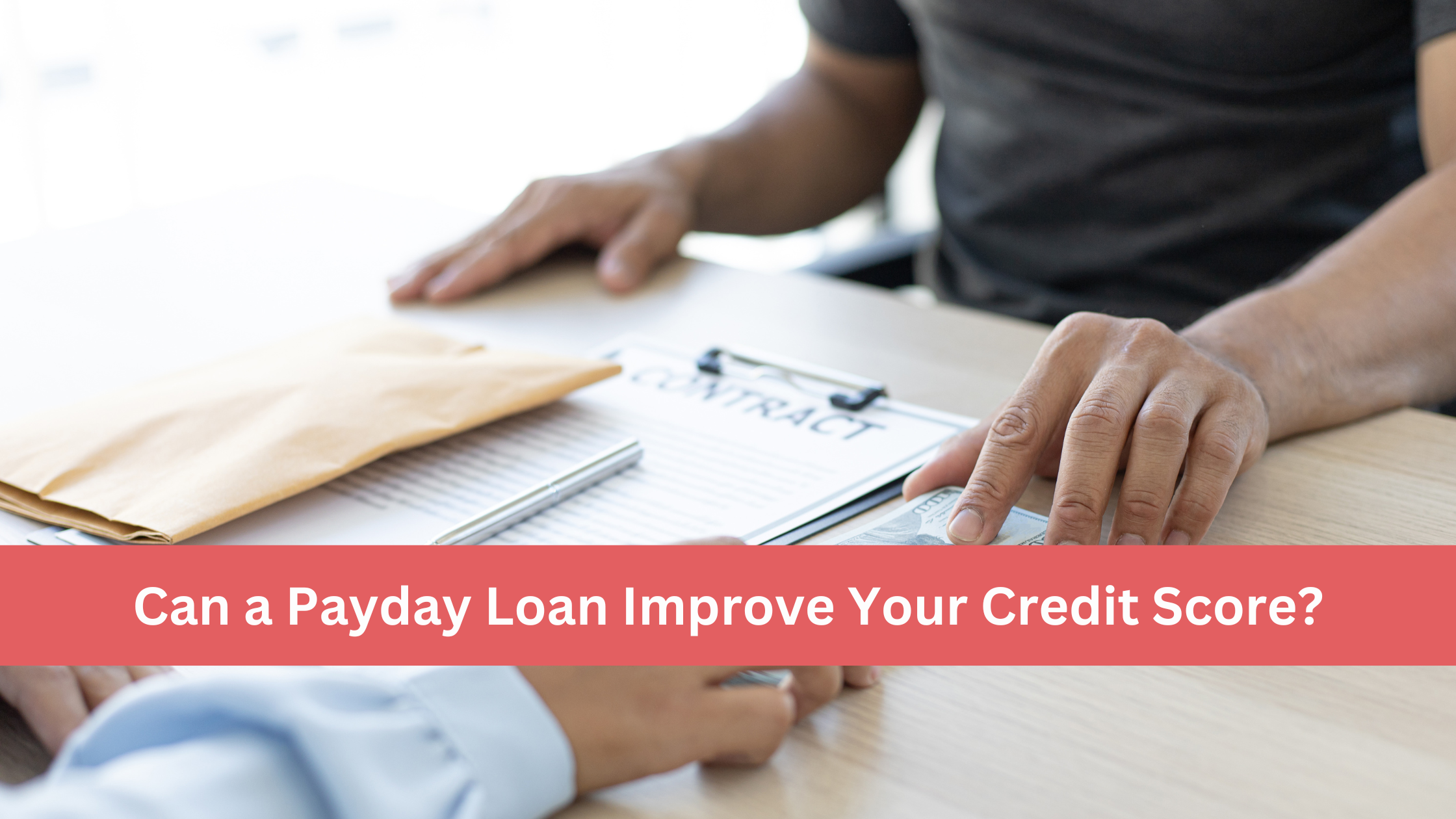Loans can be a tricky area to navigate with bad credit, and this is especially true in the case of payday loans. These short-term loans offer quick access to cash, making them tempting during financial emergencies. However, their high interest rates can turn them into a risky option if not managed carefully.
While payday loans are not inherently bad, they require responsible borrowing. If used wisely and repaid on time, they can help in rare cases to maintain or even slightly improve your credit score, despite a poor credit history.
This article breaks down the pros and cons of payday loans and how they can affect your credit score. By understanding how these short-term solutions work, you can make informed decisions and avoid common pitfalls.
Let’s dive into what you need to know before considering this financial option.
1. Understanding the Basics of Payday Loan
Living paycheck to paycheck is no fun, however, if you’re employed, a payday loan is an easily accessible credit option to manage monthly expenses. In contrast to a personal loan, which is typically a sizable sum of money for more significant expenses, these loans offer only a small sum of money.
Payday loans come with high interest rates and are usually seen as a last resort to deal with small credit needs. The duration of repayment is also considerably shorter, with the date often being the borrower’s next payday.
Unlike traditional loans, payday lenders typically don’t perform hard credit checks. A hard credit check can impact your credit score and is required for many loan types to help lenders assess risk. While skipping this step might seem convenient, it has implications for both lenders and borrowers.
For lenders, avoiding hard credit checks means they accept greater risk. For borrowers, it’s important to understand that without this check, your repayment activity is not reported to credit bureaus. This means that even if you repay a payday loan on time, it won’t contribute to improving your credit score.
This is even more important if you’re applying for a payday loan with bad credit. Credit bureaus look for loan repayments to determine your credit score or history, and repayments are potential green flags. Loan repayments have always been known to boost borrower reliability.
Payday loans should be used sparingly and only for urgent, small financial needs. They are not a tool for building credit or managing long-term financial issues and must be approached with caution and responsibility.
2. Impact on Credit Score
While you can get a payday loan even with bad credit, it becomes a problem when you fail to repay this short-term loan within the stipulated time, i.e., your next payday.
Even though they do not run hard credit checks or report your repayments to credit bureaus, lenders will definitely report your payment default to collections management. Having debt, like unpaid bills or loan repayments, might stay on collections records for years.
This can negatively impact your creditworthiness and potentially lower your credit score. What does this mean for you as a borrower? You could lose access to better credit options or even face increased borrowing limits as a result. The only instance in which a payday loan can positively impact your credit score is when you make the repayments on your next payday.
A consistent payment schedule accounts for approximately 35% of your credit report. While different credit bureaus will factor in different criteria, it’s safe to assume they view loan repayments positively. This is why it’s best to borrow only when you’ve exhausted every other credit option and when you’re sure you can repay your loan by your next payday.
3. Improving Your Credit Score
Once you understand that timely loan repayments are the crux of improving your credit score, you’ll realise that it isn’t an impossible feat. When dealing with bad credit, choosing low-interest loans from non-profit lenders or credit unions is often a safer and more manageable option.
If you only need a small sum, asking friends or family for help might be a more affordable alternative to high-interest loans. A poor credit score is typically the result of missed payments or unresolved debts.
While payday loans might seem like a quick fix, they’re not the best option for addressing existing debts. Instead, consider a debt-consolidation loan, which can combine high-interest debts into one manageable payment. This approach not only simplifies your finances but also helps you pay off debts faster, paving the way for better credit opportunities. Doing this will also ensure you’re on your way to being debt-free faster, possibly opening up better credit options in the future.
If you’re looking to build up your credit, specialized credit-building loans are an option to consider. These loans allow you to save and improve your credit simultaneously, benefiting both your financial future and your current stability. With consistent efforts and informed choices, achieving a healthier credit score becomes a much more attainable goal.
Conclusion
Payday loans can only only help improve your credit score if you make your repayments on time. It’s important to choose a lender that will report your repayments to a credit bureau, as most lenders are not obliged to do this, however, it can help your credit report.
Given they come with high interest rates, you should be able to negotiate a fair deal for your payday loan. Regardless, it’s always good to remember to borrow responsibly.
